TAKING CARE OF YOUR EYES
Visiting the ophthalmologist : key dates
Recommended ages
to see an ophthalmologist(1)
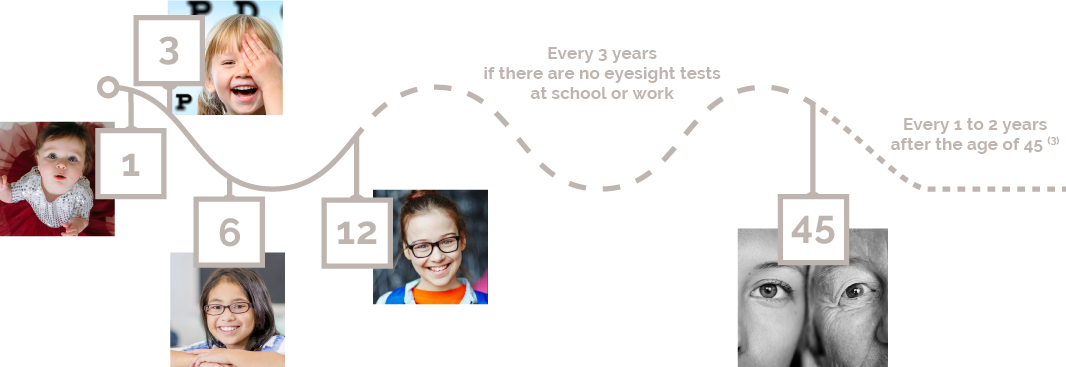
Identifying problems among children
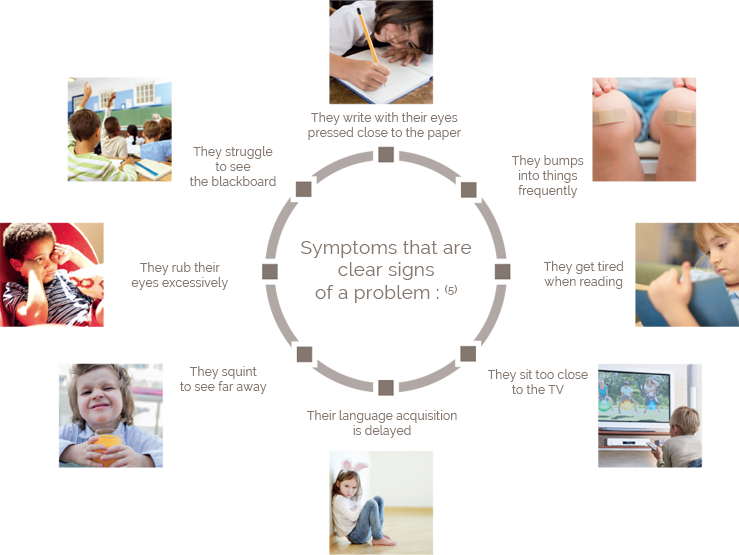
(1) http://www.snof.org/public/conseiller/les-âges-de-la-vue
(2) EYElliance, Social Entrepreneurs, World Economic Forums. Eyeglasses for Global Development, Bridging the Visual Divide. 2016
(3) Or more frequently as recommended by your ophthalmologist
(4) Or before 12 months as recommended by your pediatrician
(5) Special report on identifying vision problems among children June 2009. French Pediatric Society.
Identifying problems among adults
You don’t wear eyeglasses
Do your eyes get tired, is your vision blurry or do you suffer from daily discomfort? These may be the first signs of an eyesight problem. Be vigilant and consult a specialist if you have any doubts.
The first signs of presbyopia may appear around the age of 40. If this occurs, we recommend you visit an ophthalmologist.
After the age of 45, a comprehensive test every 1-2 years is recommended to ensure that no eye conditions are developing.
You already wear eyeglasses
Your eyesight should be regularly monitored to ensure you still have the right correction.

Understanding your prescription
You have just visited your ophthalmologist. With your prescription in hand, you can now buy some new eyeglasses.
But what do the numbers on your prescription mean? How should you read them?
The prescription provides the amount of eyesight correction. The validity of an eyeglass prescription varies depending on your age :
- 1 year for children under the age of 16,
- 5 years for adults aged 16 to 42,
- 3 years for adults over the age of 42.(1)
During this time, opticians are authorised, under certain conditions, to perform an eye test — or request additional tests with an orthoptist — and adapt your prescription as a renewal. Except if you have a disease or a note from your ophthalmologist.
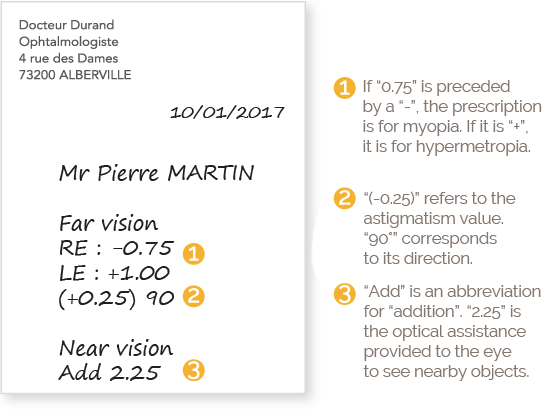
Planning your visit to the optician
Before an appointment for your first appliance
Understanding your eye condition and your correction needs. Ask your optician any questions that you might not have asked your ophthalmologist. They will be able to explain your eye condition and how your eyeglasses will help you correct it.


Choosing your frames and lenses
Taking measurements
Once you have chosen a frame, the optician will take your measurements and centre your lenses. And what about renewing eyeglasses ? Plan ahead ! If you already wear eyeglasses, don’t forget to take your current pair as well as your lenses’ authenticity certificate or receipt.
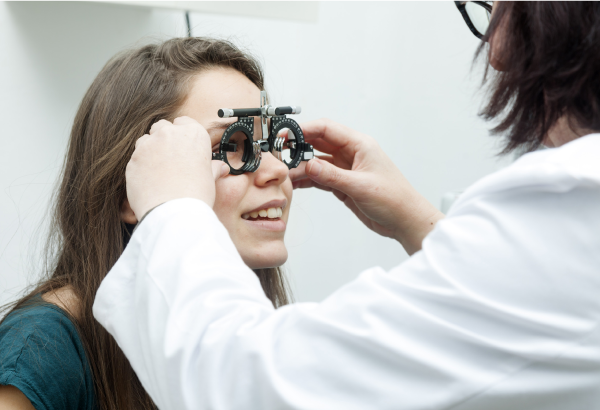
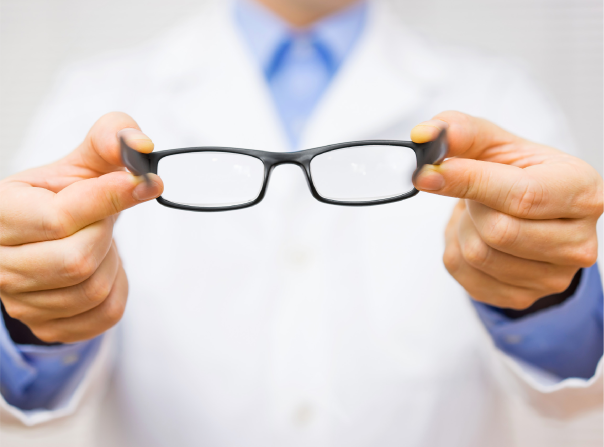
You can ask your optician for a free quote. Detailed eye care quotes have been compulsory by law since 1st January 2019.
Delivery of the appliance
Your optician will make some adjustments to the frame on your face. Lastly, they will give you some practical help, including how to look after your appliance.
